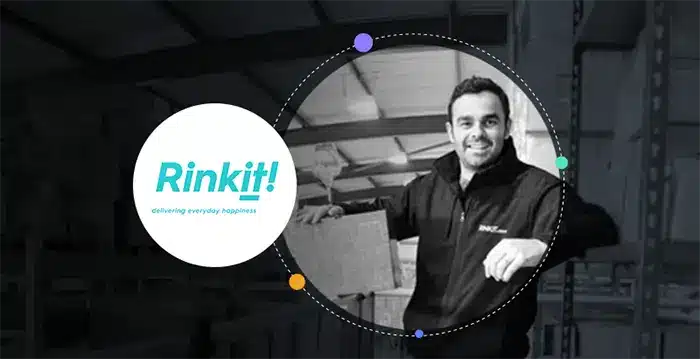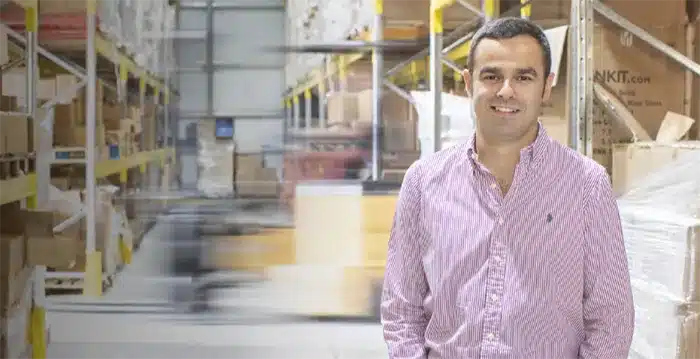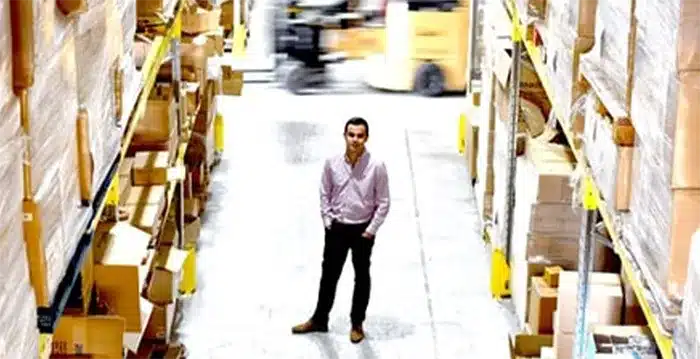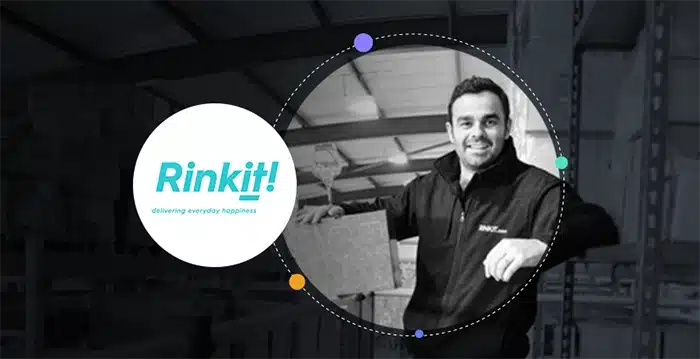
How Rinkit overcame overselling with Linnworks
New commerce connects
Find out how Linnworks can help grow your business.

Overselling: A big problem with a simple solution
“Overselling may be one of the most common challenges in ecommerce, yet despite the frequency in which it occurs, the implications of selling more stock than you have available can’t be ignored; the risk of marketplace suspension, disappointed customers and missed sales opportunities.”
These consequences aside, it can also put immense pressure on your business, both financially and operationally.
The good news is that although thousands of online sellers just like yourself have faced these same chaotic selling conditions, many have also successfully overcome them. One example is home and garden retailer, Rinkit.
Throughout this guide, we will take a close look at the problems associated with overselling, explain how Rinkit overcame the same barriers you may well be experiencing and detail how with the right processes in place you can in fact scale your business sustainably.”
Overcoming overselling
“Christmas 2015 was extremely stressful. We were overselling and the way we were operating was too slow to grow the business. In fact, it was chaos and it wasn’t sustainable”
We spoke to Richard Goss, Commercial Director and Co-Founder of Rinkit, about his team’s battle with overselling and how they resolved their challenges by implementing an inventory and order management system.
The Christmas period is a particularly stressful time of year for any online retailer, but for Rinkit, Christmas 2015 saw the company near breaking point.
In fact, one moment, in particular, saw the team faced with thousands of orders for champagne glasses – thousands more than they had available to fulfill.
It was at this moment they recognized that something had to change if they were to not only survive but more importantly succeed.
But how did this happen to start with? Richard recalls: “We were overselling because our normal process was to set stock levels ludicrously high across all platforms and marketplaces until we sold out, and then switch it to zero”.
“On top of this, we would print all of the orders at the same time, manually sort them into piles, add them up and then minus them off stock sheets through Excel”.
Ultimately, Rinkit had successfully grown their business to a point that they had outgrown their manual approach to inventory management and could no longer rely on their existing processes, without risking account suspension on the marketplaces they were selling through or without damaging relationships with their customers.
Their situation also meant they were missing out on sales opportunities, with Richard even having to turn down the chance to work with a marketing agency that had the potential to help them boost their exposure and sell thousands more products.
“We thought that we might not be able to cope”, admits Richard. “You need to be in a place where the marketing strategy will create sales that you can cope with as a business and profit from, not a marketing strategy that will generate sales that will break you”.
Despite having already grown a multi-million pound business at this point, the sudden influx of orders meant that the team was too preoccupied with processing orders and avoiding overselling, rather than focusing on growth strategies.
“We had reached a level at which we could trade. We couldn’t have grown and remained successful and profitable business without a system that would take the strain off the various things that were being done manually”, concludes Richard.

Solution: From chaos to clarity
For Rinkit, the decision to automate their processes began straight after the Christmas period.
“We’d come out of this horrendous Christmas period”, recalls Richard. “Even in January 2016, there were days where we still fell behind operationally. We needed to find a solution that would enable us to work smarter rather than harder”.
Despite adversity, Richard felt confident that the challenges faced by the team could be overcome by better data management.
With this in mind, he created a systems specification list originally intended for a piece of custom software, which included:
• Prevent overselling and underselling
• Control the business through one centralized location
• Automate and eliminate manual tasks
• Provide analytical reports to inform decision-making
• No commission fees based on current sales
Thanks to a chance encounter with a Linnworks advocate, combined with his own research into possible solutions,
Richard quickly realized that the issues he was looking to resolve within Rinkit could be supported through the use of an inventory management system.
“A lot of the problems we faced that month and a lot of the problems that I wanted this custom piece of software to address were addressed by Linnworks”, says Richard. “The really important ones were solved almost overnight”.
No longer overselling
Having synchronised their stock across each of their selling channels, the Rinkit team have now eliminated the risk of overselling. Automatic inventory updates means that all product listings will reflect accurate stock levels, regardless of how many different platforms the product is being sold on.
Improve business efficiency
Rinkit has been able to automate a number of manual tasks to improve day-to-day business efficiency. Certain daily tasks, such as sorting through orders, have been removed from the process entirely, making the team more efficient and able to cope with the large volume of orders coming in each day, as well as the influx in sales over peak periods.
Reduce business costs
Having an automated system that does the thinking for you when it comes to the least cost routing of a parcel, based on several different factors, has saved Rinkit time, whilst ensuring the least operational costs possible.
More control
As the system automates almost every aspect of the business, Richard has full visibility of the company’s performance at any point in time. Direct reports and user permissions also help to ensure that the right people have access to certain data, and the system also monitors staff activity, which helps Richard identify areas for praise and resolve any issues before they escalate.
Increase business profitability
Thanks to the data and analytics the team has access to within the system, the leadership team are able to make more strategic and well-informed decisions.
“We’ve experienced rapid financial growth as we’re much better at controlling our stock”, says Richard. “Day by day, we can see trends and see problems coming in and give ourselves enough time to sort them out”.
Sustainable growth
“We’re using our order management system to grow by exploring new countries and new channels all of the time”, says Richard.
“And we do that with the confidence knowing we can cope with the orders coming in and we can cope with the volume of new orders coming in from new channels, and we can deal with them. Just like we do with all Rinkit orders”.

Where is Rinkit now?
“Having an inventory and order management system that’s cloud-based has enabled us to move our Head Office away from our operational warehouses”, says Richard. “We now have a Head Office based in Chichester, which is near a university and train station, making it really easy to recruit excellent talent that we couldn’t access before”.
“In this new environment, there’s a real buzz around progress and new and clever ways of doing things. We’re still very much in touch with the warehouses, how they’re coping and what the order flow is like, without having to pick up the phone”.
“We’re growing our product range, which will facilitate an increase in sales and an increase in the amount of orders we can fulfil every month. Our growth is definitely larger because we have better control of our data and better control of our sales channels and pricing. We know what’s going on and we have the time to think strategically about our future moves”.
“In the future, I’m going to focus on keeping up with our customers, their experiences and their expectations. People want better value, faster delivery and better prices, and that’s okay, because with smart business decisions and good systems that manage the order fulfilment and manage the purchasing, we can deliver that”.
